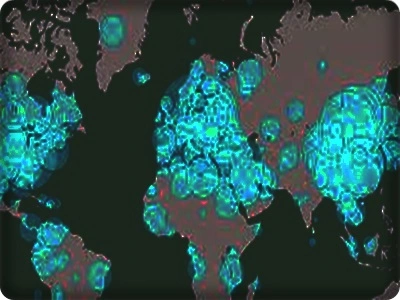The COVID-19 pandemic has not only affected individuals’ health but also showcased how political decisions can shape the trajectory of a public health crisis. In this blog post, we will delve into the changing political geography of COVID-19, examining how different countries’ political systems, leadership styles, and policy responses have influenced the spread and containment efforts of the virus.
1. Political Systems and Response Strategies
One crucial aspect that has contributed to the varying outcomes in managing COVID-19 is the diversity of political systems present across different countries. Democratic nations often face unique challenges due to their decentralized decision-making processes. On the other hand, authoritarian regimes might exert more control but can also be prone to issues like censorship and lack of transparency.
2. Leadership Styles in Crisis Management
Effective leadership during a pandemic plays a critical role in shaping both public perception and policy implementation. Comparing leaders from different countries, such as Jacinda Ardern in New Zealand or Angela Merkel in Germany with their transparent communication styles and data-driven decision-making, provides insights into successful strategies for crisis management.
3. Policy Approaches: Lockdowns vs Public Health Measures
Countries worldwide responded differently to COVID-19 by implementing various policies ranging from strict lockdowns to prioritizing public health measures without imposing severe restrictions on daily life. This section explores how these diverse approaches have impacted infection rates, economies, mental health, and social stability within nations.
4. Lessons Learned from Past Epidemics
Examining past epidemics like SARS or Ebola outbreaks helps us understand how previous experiences influenced political decision-making during the current pandemic. Governments that had dealt with similar crises before were often better equipped to respond quickly and efficiently, demonstrating effective risk assessment capabilities.
5. Global Cooperation vs National Interests
The pandemic has posed a challenge to global cooperation as countries grapple with balancing national interests and international collaboration. This section will discuss the implications of geopolitical tensions, vaccine nationalism, and the role of organizations like the World Health Organization (WHO) in coordinating global responses.
6. Communication Strategies and Public Trust
The effectiveness of public health measures heavily relies on public trust in government institutions. Clear communication strategies from political leaders, addressing misinformation promptly, and fostering transparency can undoubtedly shape individuals’ behaviors during a pandemic.
7. Political Polarization and Policy Response
COVID-19 has exposed deep societal divisions and political polarization in many countries. This section analyzes how political polarization influenced policy response by creating opposing narratives about the severity of the virus, mask-wearing, or even the efficacy of vaccines.
8. Economic Recovery Plans: A Political Balancing Act
Political choices also play a significant role in formulating economic recovery plans amidst the pandemic. Governments’ decisions regarding financial support for businesses, stimulus packages, healthcare investments, and job protection reflect their priorities and values.
9. The Role of Science in Decision-Making
The politicization of scientific advice has been a recurring theme throughout the pandemic. Examining instances where politicians disregarded or manipulated scientific evidence provides insights into how politics can overshadow public health concerns.
10. Case Studies: Successes and Failures
This final section presents case studies of countries that have managed COVID-19 more effectively as well as those with less successful outcomes. By analyzing both success stories such as Taiwan’s early containment efforts or failures like Brazil’s delayed response, we can draw valuable lessons about politically-driven pandemic management.
Conclusion
The changing political geography of COVID-19 prompts us to reflect on how different political systems, leadership styles, policy approaches, communication strategies, and economic considerations have shaped our experience of this global crisis. By understanding the impact of politics on pandemic response, we can learn valuable lessons for future public health emergencies and work towards more coordinated and effective global efforts.



